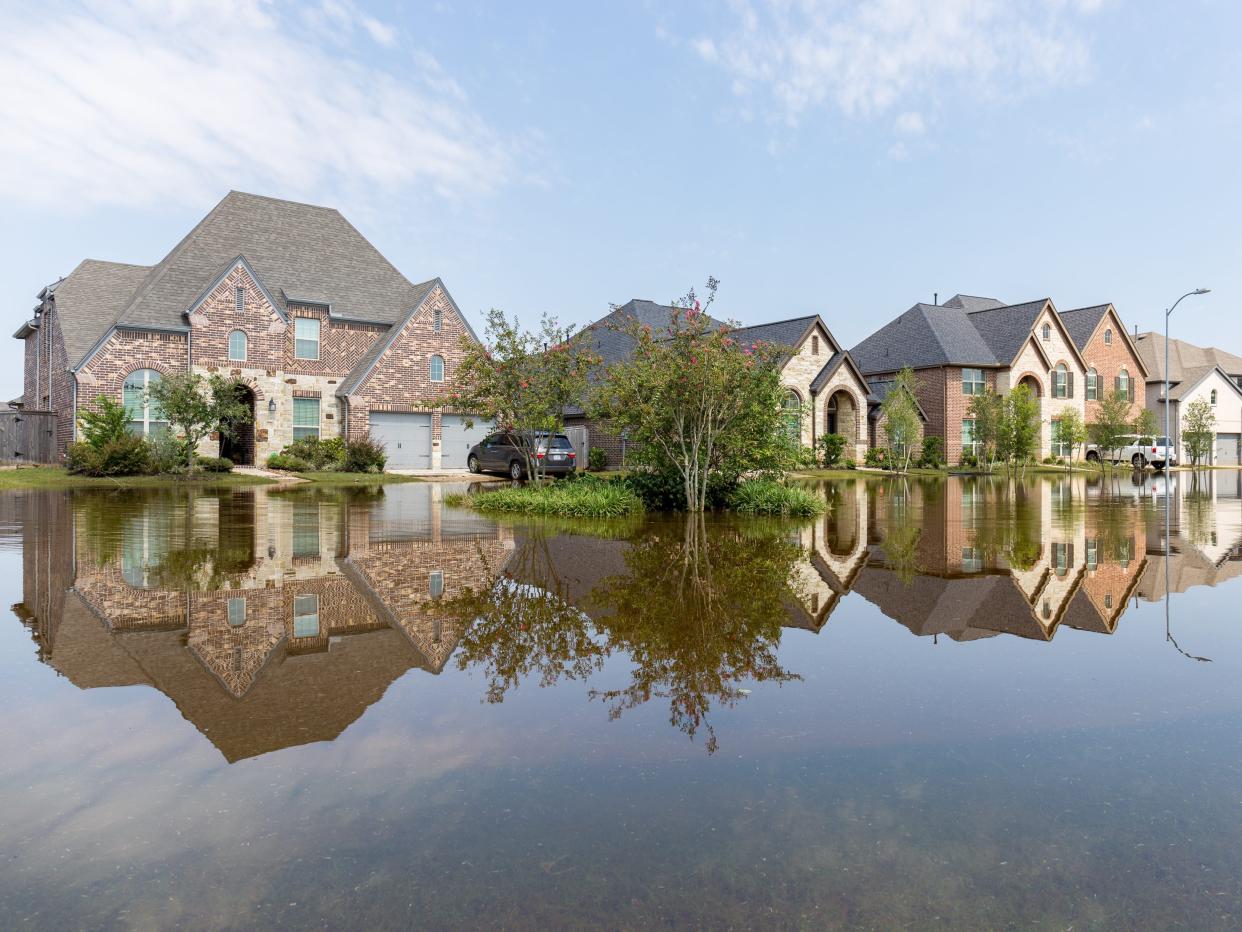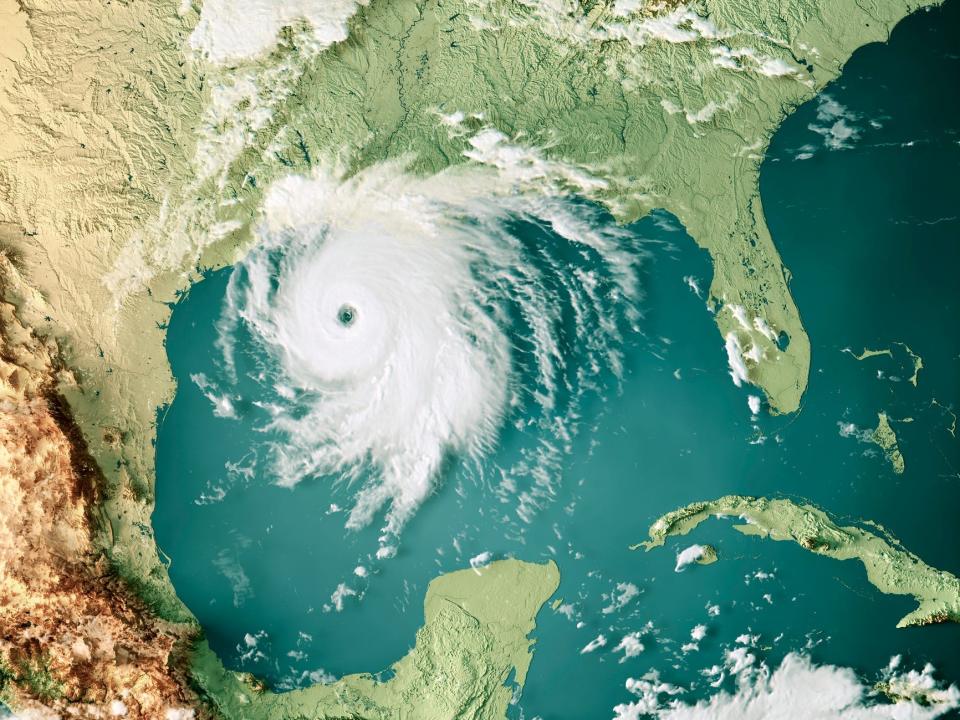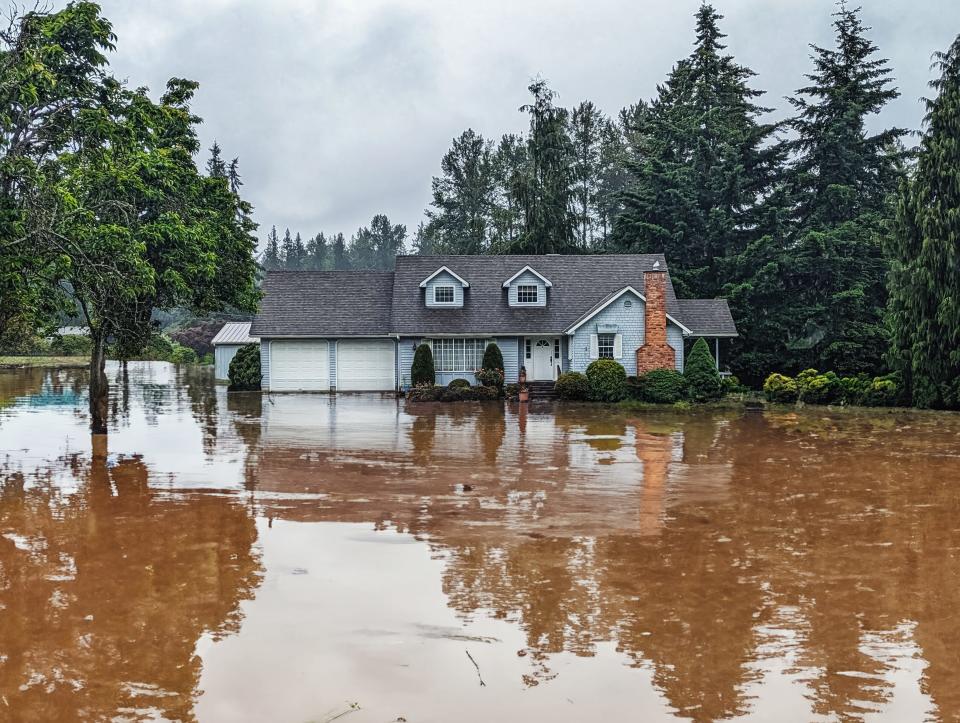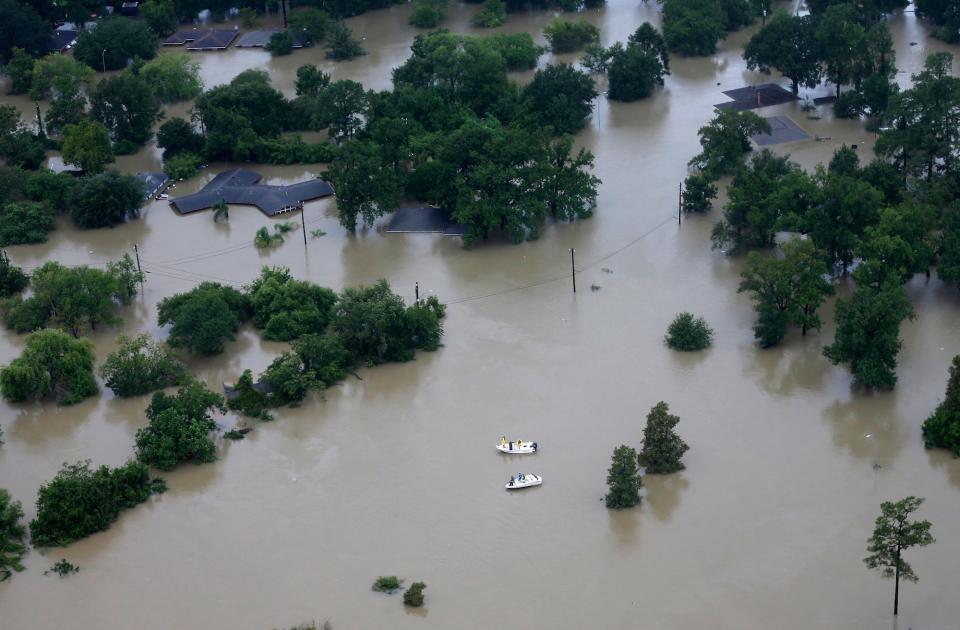A Texas coastal engineer says a simple home-buying decision saved his house from Hurricane Harvey — and could help other home-owners in flood zones

Stronger hurricanes are growing more frequent and causing more damage to US coastal cities.
As a coastal engineer, Jens Figlus works to protect coastlines from these threats.
He lives in Texas, which was ravaged by Hurricane Harvey. But his home was safe because it sits 16 feet above sea level.
Jens Figlus vividly recalls the day hurricane-driven floodwaters surged into his neighborhood.
"People across the street were airlifted off their roofs with helicopters," he said. But Figlus, his family, and property were unharmed.
"We were basically sitting in the living room with power, internet, everything — watching boats go by in our street," he told Business Insider.
While this scene is from 2017, when Hurricane Harvey ripped through Texas and Louisiana killing over 100 people, Figlus' secret to saving his family and property is more relevant than ever this year.
2024 may be the worst hurricane season in history

A coastal engineer at Texas A&M University, Figlus is an expert on flooding. He's acutely aware that climate change is driving sea level rise and making dangerous storms like Hurricane Harvey more common. And this year is looking like it could be an especially bad one.
This week, the National Oceanic and Atmospheric Administration released its first hurricane forecast for this year's season. It predicts that an unprecedented 17 to 25 named storms could ravage the North Atlantic this hurricane season, and potentially make landfall in the US. Other scientists from the University of Pennsylvania predicted an even higher number — 33 named storms — in April, which is the highest storm count ever forecasted.
Altogether, the data suggests that 2024 could be one of the worst hurricane seasons in history. Meanwhile, a different team of scientists argued earlier this year that we need to add a Category 6 to the Saffir-Simpson Hurricane Wind Scale to account for the growing severity of hurricanes and better inform people of what's headed their way.
Coastal cities, like Houston, are especially vulnerable. What's more, Houston is one of the fastest-growing US cities. Between 2022 and 2023, Houston had the second-largest population growth in the nation, welcoming roughly 140,000 new residents, according to the US Census Bureau.

"People that move to this area typically are not familiar with the type of hazards that they're putting themselves in front of — the flooding, primarily," Figlus said of Houston.
During Harvey, the development Figlus lives in ended up being "locked out from the rest of civilization for five days, just because of floodwaters" he said. "But not my house."
What's Figlus' secret? "Elevation matters," he said. Figlus and his family live up on a ridge that's 16 feet above sea level. It's the highest point in their development, he said. Thanks to their elevation, the floodwaters couldn't reach them.
He knew that living in the greater Houston area meant his family's home would be vulnerable to flooding, but because of his work, he has to live near the coast. He's 25 miles north of the Gulf Coast, and 10 miles west of Galveston Bay.
That's why elevation was an important factor in his home-buying process. But you don't have to be a coastal engineer to make a well-informed choice when shopping for a home in a flood zone.
How to assess flood risk

When shopping for homes in an area that's vulnerable to flooding, like the greater Houston area, it's often up to homebuyers to assess the risk, Figlus said.
"The risk to the potential homebuyer may not be disclosed," he said. "And the developer doesn't have any incentive to tell people, 'Here's the risk, let me outline it for you.'"
Even as Texas faces more frequent and intense hurricanes, Figlus doesn't expect that developers will stop building homes in high-risk areas. He also doesn't expect to see fewer people moving to Texas despite increased flooding.
He only hopes prospective homebuyers will try to make well-informed decisions about where they live, like he did.
"If you spend a little bit of time, you can actually make some smart decisions related to the flooding hazards," Figlus said.

Asking the seller about the history of flooding in the area is a good place to start. If you need more information, use the FEMA Flood Map Service Center to look up the address of your potential new home. This online service provides a detailed breakdown of flooding risk in a given area.
You can also consider purchasing flood insurance. That way, even if your home does flood, you're financially protected. But before purchasing your own policy, ask the seller if they already have flood insurance. In some cases, they can transfer their policy directly to the new owner.
All in all, Figlus thinks people can still live in flood zones relatively safely, as long as they understand the risks.
"With a little bit of additional knowledge, and due diligence, and asking the right questions of the right people, you can make this work really well," he said.
Read the original article on Business Insider

 Yahoo News
Yahoo News 
